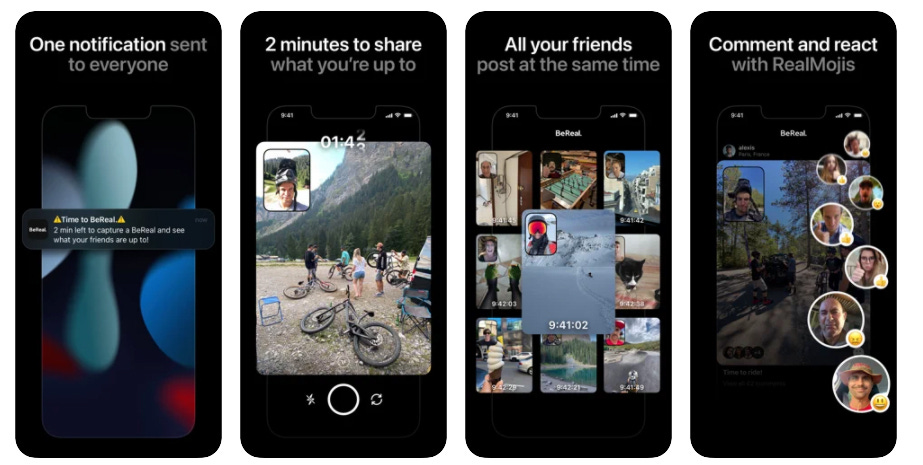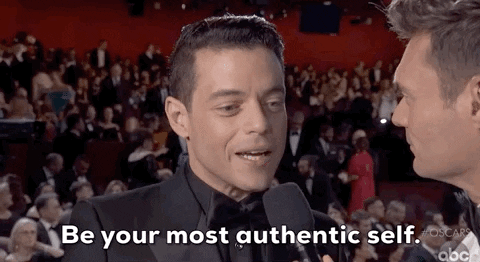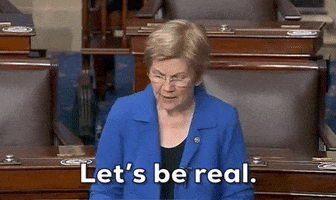😳 Authenticity - the trend towards the real thing
Why authenticity is the trend and how marketing can build on it.
Hi 👋 I’m Florian Schleicher. This is the FutureStrategies newsletter of FUTURES. Thank you so much for reading along 💚 If you want to learn strategic marketing from me, then my Simple & Sustainable Marketing Academy is the perfect fit for you.
What is real these days? In a world where highly staged and filtered images on Instagram are very popular, it's hard to find "real".
More and more young people are bored with their fellow users' inauthentic appearances and the ubiquitous brands' presentation culture.
But there is a counter-trend.
While many have grown up with curated online presences - designed Instagram grids, LinkedIn job ads, and a smorgasbord of the best posts (the ones with fewer likes are simply deleted), a new need is gaining traction:
🧐 Authenticity
From the Greek αὐθεντικός authentikós "genuine"; late Latin authenticus "vouched for, reliable" - meaning authenticity in the sense of originality.
Expressed in pop culture terms: the change from Kylie Jenner to Charli D'Amelio.
Or in the words of a marketeer:
“When you walk into our booth, you should feel as if you’ve just walked into a garage where people have grease—our grease—under their fingernails.”
Marty Echt, CMO Harley Davidson
🙋 Let’s be real
A good observation point here is the use of apps.
We are seeing very strong growth in TikTok (whose content is based on authenticity) and a loss of users on Facebook.
The popularity of another young app also shows that there is a real need behind the trend:
Every day at a random time, BeReal sends a notification to all users and asks them to take photos with their front and rear cameras at the same time. This "double snapshot" is then shared with the group of friends.
In the summer of 2022, BeReal already had over 20 million users.
“It seems like Gen Z is getting really tired of presentation culture.”
Zeke, a 21-year old biologist on Discord
This also explains the trend away from millionaire influencers towards micro-influencers. But more on that another time.
Authentic marketing
Why is this trend relevant for brands?
3 out of 10 millennials unfollow brands on social media because their content seems fake.
Young people have grown up in the era of "fake news" and have therefore become good at recognizing misdirection and not reacting to branded hype. Instead, they look for brands that are transparent and authentic.
23% of Gen Z say they value authenticity more than any other attribute of a company, or product.
“Marketers who aren’t evolving their future-looking strategies to engage this generation with transparent, authentic experiences are already falling behind.”
If we want to win over people's ever-decreasing attention spans, we need to move away from filtered advertising messages and professionally shot photos and videos.
We need to show real people, real employees, real emotions, and real scenes. This starts with the visual language but ideally goes deep into the design of all marketing communication content.
We are all human and know ourselves what is authentic. But in everyday business life and with a pronounced internal view, it is difficult to find this voice again.
It often helps to ask external experts (or simply acquaintances):
"Do you think this is real?"
We need to take the perspective of our target group.
This means having clear values and communicating them transparently.
It also means letting people look behind the scenes.
Hire employees who represent the brand.
To write texts of all kinds the way we would tell them when meeting friends.
To be self-critical.
And to do good first and then talk about it.
If brands manage to show this "authenticity" of their content and their aspirations, then they will find it easier to continue to reach younger generations and perhaps even convince critical consumers of their merits:
“This suggests that, in order to regain consumers that are critical towards the marketing discipline, the elaborated authenticity facets could be applied to brands as an ‘antidote’.”
Christine Marks & Dr. Melani Prinsloo, Grenoble Ecole de Management
Thank you for reading along,
PS: You can also read this posting in German.





